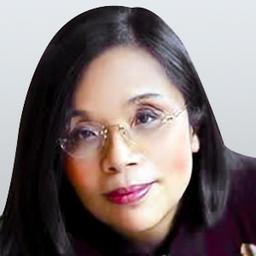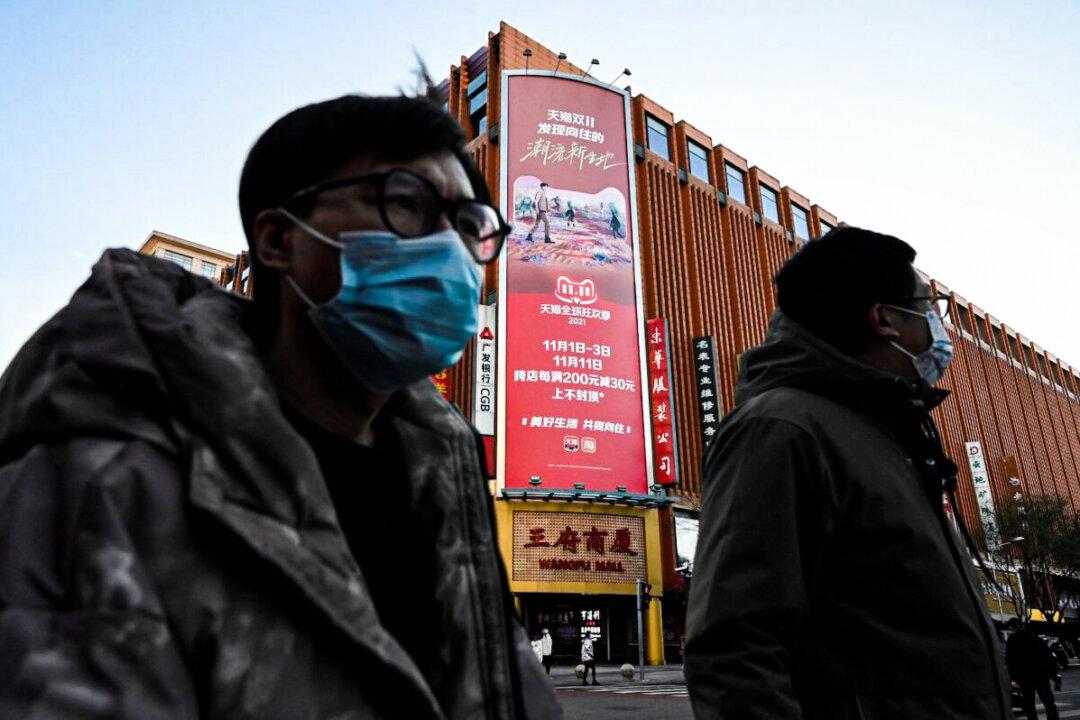Recently, billionaire investor and philanthropist George Soros, chairman of Soros Fund Management, once again became a popular target of scorn in China’s state media, with official state media publishing commentaries attacking him in both Chinese and English. People’s Daily published an article on the front page of its overseas edition titled, “Declaring war on China’s currency? Ha ha.“ The article declared that Soros’ war on the renminbi and the Hong Kong dollar couldn’t possibly succeed, suggesting that Soros is carrying out a conspiracy to short sell China. Obviously, Soros is not the only one talking about a hard landing of China’s economy—so why does the Chinese regime single him out as the “enemy of the Chinese people?”
Hard Landing Unavoidable
What did Soros say during the Davos World Economic Forum that caused Chinese authorities to loath him so much? Soros made three main points:
First, he said that the world is repeating 2008—the world economic crisis—but now the root cause is China, not the U.S., and therefore the two crises are not quite comparable.
Second, he stated that this time the crisis is caused by deflation and over-indebtedness of the Chinese economy, and that a hard landing is practically unavoidable, though China can certainly continue on the wrong course for another two or three years before it would happen.
Third, Soros asserted that China can manage a hard landing, as she has a greater latitude in using policies than most other countries with over $3 trillion in reserves.
There is nothing wrong with the first point. During the 2008 financial crisis, serious problems mostly lay in the virtual economy only; the real economy stayed intact, and the U.S. still remained the world leader in research and technology. Education remained a major industry in the U.S., and there was no issue with its institutional environment. These facts make the situation completely different from what is being faced now by China, where there are many difficulties in the real economy, such as a poor economic structure, serious overcapacity in dozens of manufacturing industries, waves of bankruptcies, lack of technological innovation and so on. These problems have been well acknowledged by Chinese economic professionals and the government. Therefore, what Soros said about China’s crisis not being comparable to the one in 2008 is indeed a very precise statement.
The second point on China’s over-indebtedness and debt ratio, is the common understanding of the international investment community and the banking sector. China’s official think tank, the Chinese Academy of Social Sciences (CASS), also holds the same view, with the only difference being level of debt ratio. In July 2015 CASS issued the China National Balance Sheet 2015 report. The report stated that the total debt of China’s economy (including financial institutions) at the end of 2014 was 150.03 trillion yuan, or 235.7 percent of GDP, an increase from 170 percent in 2008.
Predicting whether China’s economic recession would cause global deflation or inflation is like flipping a coin. A few years ago Chinese economists predicted deflation, but it turned out to be inflation. Soros is now being accused of “short selling China” simply for predicting “deflation,” which is certainly not fair.
The third point, “hard landing,” does not fit into Beijing’s propaganda program. The rest of that comment, however, is almost entirely made in a positive tone. During the past three years, the international financial and business community has gradually unified their opinion that China’s economic slowdown is inevitable. The divergence lies in whether it will be a soft landing or a hard one. The Chinese government certainly likes to hear the former. After all, who likes to hear an ominous forecast of a disastrous hard landing? Not to mention that since Mao’s era the Chinese Communist Party (CCP) has never had a tradition of accepting different opinions. Instead, it usually prides itself of “killing those who bring bad news.”
Short Selling China
A lot of good and bad news has been released about China’s economy. But at this point, little can be done to effectively boost China’s stock market, and red flags keep popping up in the currency market. Capital outflows are accelerating despite Beijing sparing no efforts to curb them. Last year’s stock market bailout appeared to be unsuccessful and in the aftermath, dozens of securities personnel were arrested for “short selling China.” In the long run, it is certainly easier to blame someone like Soros rather than arrest more Chinese securities professionals.
Furthermore, if Soros were British or French, Beijing would not pick on him as Britain and France are not part of the “hostile foreign forces” frequently alluded to by Beijing. Soros happens to be an investment magnate in the United States. He thus fully fits Beijing’s description of a “hostile foreign force.”
Finally, in the CCP’s propaganda, Soros has consistently been labelled an international financial crocodile who short sells other countries. Soros once short sold Hong Kong stocks in 1998, forcing Hong Kong to beg Beijing for help. Thanks to then Premier Zhu Rongji, who lent dozens of billions of dollars (there were rumors saying it was $28 billion), using some of the $120 billion of foreign exchange reserves, and helped the Hong Kong government force Soros to retreat.
Beijing knows very well that avoiding a hard landing of the economy is a difficult task. By setting up Soros as a scapegoat, the CCP will at least be able to say: “The hard landing is not because of the Party’s poor management of the economy. Soros did it, and he is an overly powerful opponent. Many governments have lost on account of him, therefore for China to take this hit is not shameful at all.”
This is a translation of He Qinglian’s Chinese article published by Voice of America on Jan. 30, 2016. He Qinglian is a prominent Chinese author and economist. Currently based in the United States, she authored “China’s Pitfalls,” which concerns corruption in China’s economic reform of the 1990s, and “The Fog of Censorship: Media Control in China,” which addresses the manipulation and restriction of the press. She regularly writes on contemporary Chinese social and economic issues.





